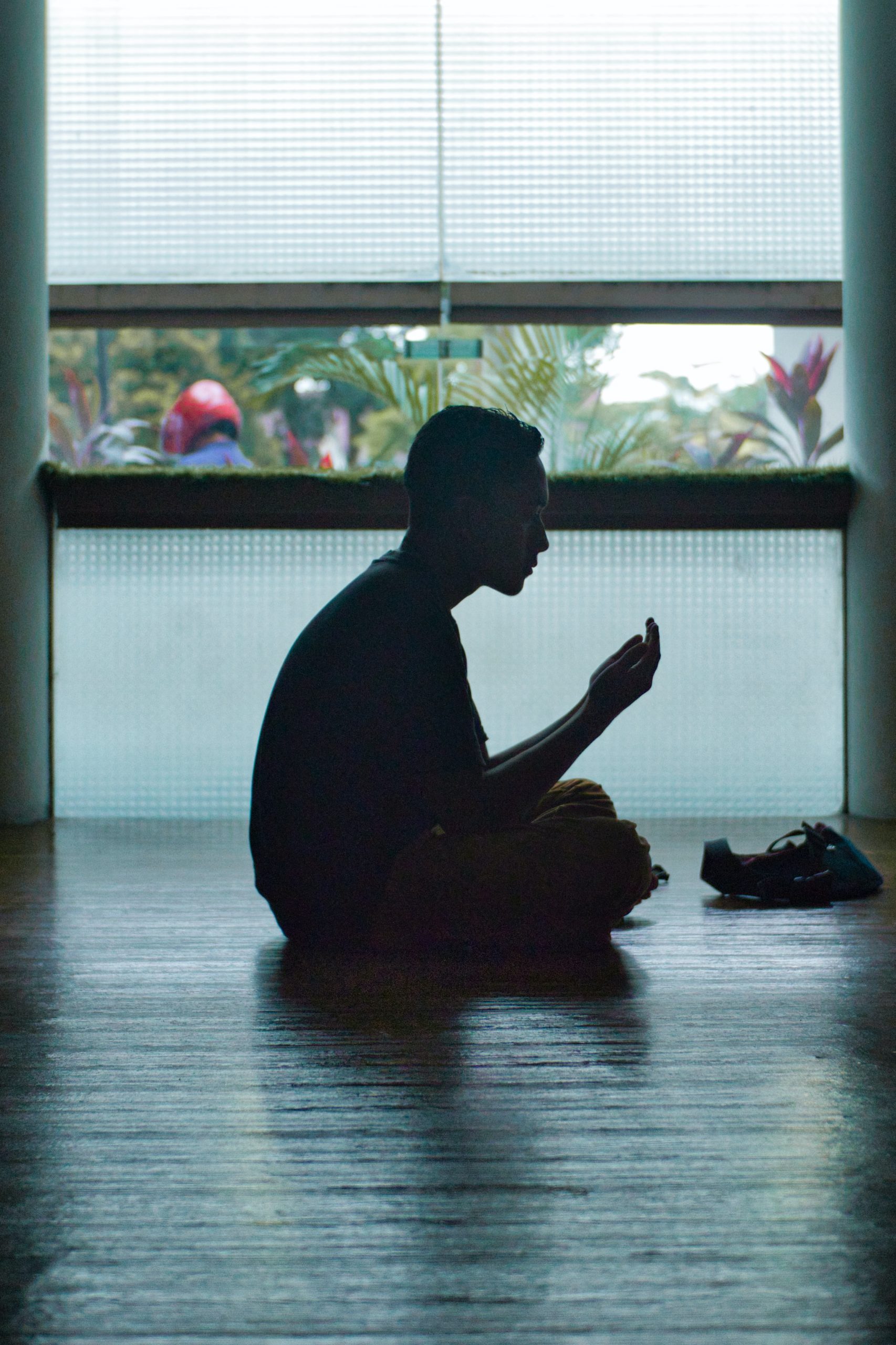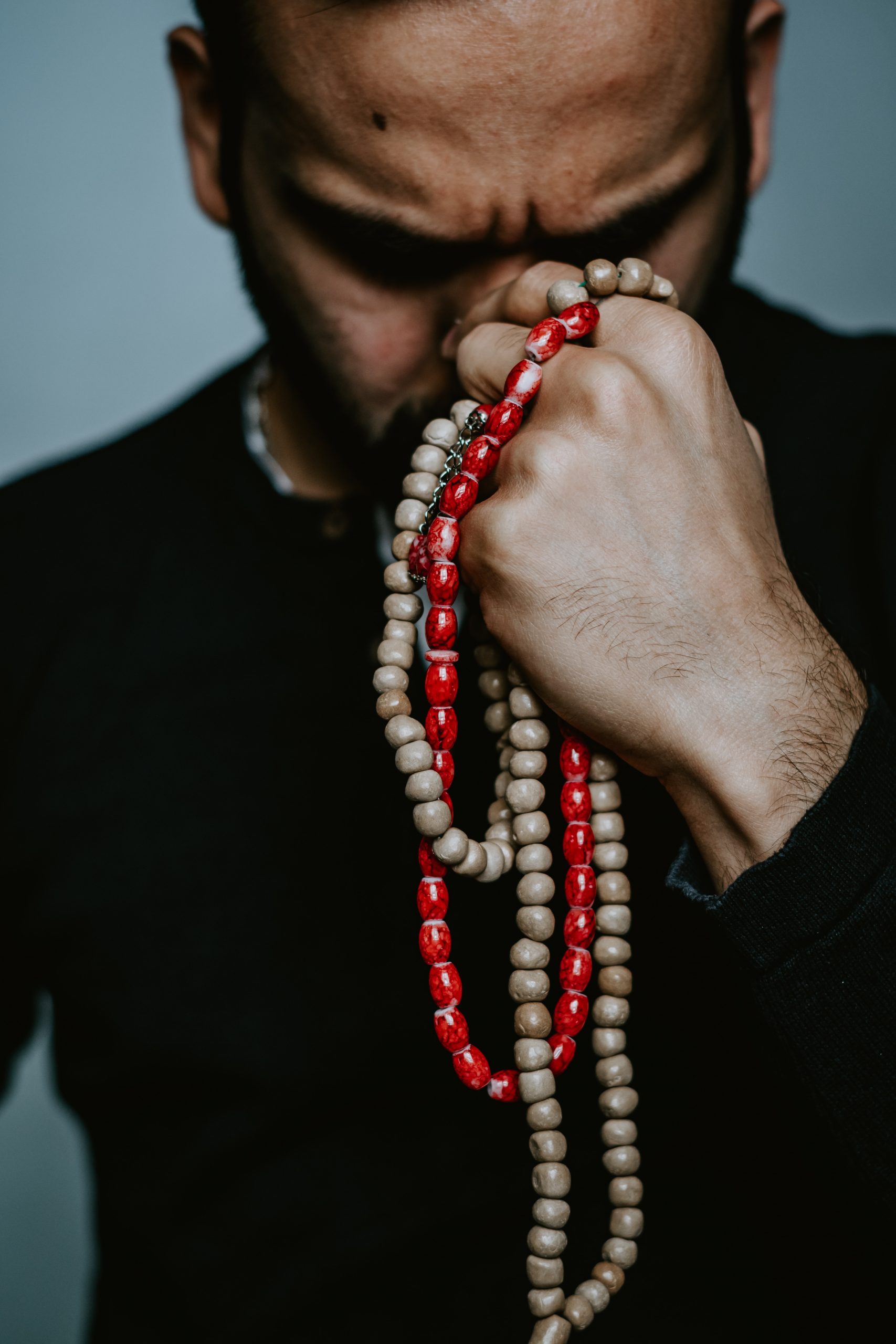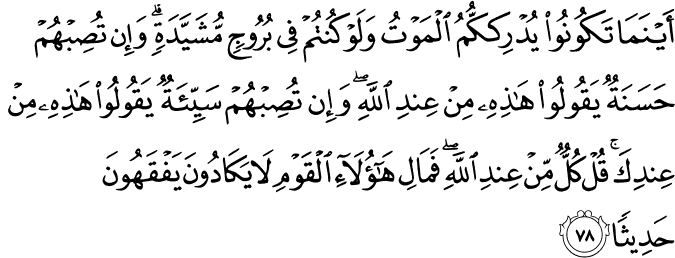#Islam
Breaking The Cycle Of Sin: The Advice of Ibn al Qayyim al-Jawziyyah
Published
By
Jakir Ahmed
An important part of preparing for Ramadan, is devising a plan where we are able to extract the maximum benefit from the month. Many of us create a strategy to soften our hearts to the book of Allah ﷻ – through the completion of multiple khatms and study of tafaseer. It is a time when the blessings of Allah 
Another gift given to us all in the month of Ramadan, is the ability to turn back to Allah 
The Messenger of Allah ﷺ said:
إِنَّ رَمَضَانَ شَهْرٌ افْتَرَضَ اللَّهُ عَزَّ وَجَلَّ صِيَامَهُ وَإِنِّي سَنَنْتُ لِلْمُسْلِمِينَ قِيَامَهُ فَمَنْ صَامَهُ إِيمَانًا وَاحْتِسَابًا خَرَجَ مِنْ الذُّنُوبِ كَيَوْمِ وَلَدَتْهُ أُمُّهُ
“Verily, Ramadan is a month in which Allah Almighty has obligated its fasting. I have instituted for Muslims the practice of prayer at night. Thus, whoever fasts it with faith and expecting reward will be rid of sins like the day he was born from his mother.” [Musnad Ahmed]
Keep supporting MuslimMatters for the sake of Allah
Alhamdulillah, we're at over 850 supporters. Help us get to 900 supporters this month. All it takes is a small gift from a reader like you to keep us going, for just $2 / month.
The Prophet (SAW) has taught us the best of deeds are those that done consistently, even if they are small. Click here to support MuslimMatters with a monthly donation of $2 per month. Set it and collect blessings from Allah (swt) for the khayr you're supporting without thinking about it.
Qatadah ( رحمه الله) said, “Whoever does not have his sins forgiven in Ramadan, he will not have his sins forgiven in other than Ramadan.” [Lata’if al-Ma’arif by Ibn Rajab]
We are all amongst those who fall into sin. We all make mistakes. Every once in a while, we fall into a weak spot. The defining characteristic of a believer and the righteous is how they respond to these shortcomings.
Our beloved Messenger ﷺ said:
كُلُّ بَنِي آدَمَ خَطَّاءٌ, وَخَيْرُ اَلْخَطَّائِينَ اَلتَّوَّابُونَ
“All of the children of Adam are sinners, and the best sinners are those who repent.” [Sunan al-Tirmidhi 2499]
Our religion is a beautiful one, such that the love and affection that Allah ﷻ has for us grows the more we ask Him for forgiveness, despite the many sins we accumulate on our record. RasulAllah ﷺ said, “If you were to commit sins until your sins reach the Heaven, then you repented, your repentance would be accepted.” [Sunan Ibn Majah 4248]
In order to be amongst at-Tawabun, alongside regretting the sin, we must strive to give up the sin.
Allah 
“But man desires to continue in sin.” [Surah Al-Qiyamah 75;5]
Sa’eed ibn Jubayr (رحمه الله) said: “… to continue in sin” i. e. that he prefers to sin and put off repenting, so he says, “I will repent later, I will do good deeds later” until death comes to him while he is at his lowest point and his worst deeds.
It is imperative that we work hard to break the cycle of sin and there is no better opportunity than that of Ramadan. It is the month that we each excel in far more than any other month. It is a month where we are free from the whispering of shaytaan, pushing us to do evil. It is a month where we have all increased in doing acts of good, softening our hearts, and making it easier to leave off sin.
Insha’Allah, this article will share 5 practical measures we can take, based on advice given to us by al-Hafidh Ibn al Qayyim al-Jawziyyah (رحمه الله) on departing from a life of sin.
1.Glorifying Allah 
Acknowledge the Majesty of Allah ﷻ within your heart. We all know that you love Allah 

Allah ﷻ tells us in an-Nahl:
“If you tried to count Allah’s blessings, you would never be able to number them. Surely Allah is All-Forgiving, Most Merciful.”
“And Allah knows what you conceal and what you reveal.” [Surah an-Nahl; 16;18-19]
He ﷻ has no need for us, it is only ourselves who have absolute need of Him. Despite our many transgressions, He is Merciful toward us. Despite His awareness of the worst of our sins, He veils this from our fellow brothers and sisters and does not stop showering us with His blessings.
If we find our desires inclining us towards sins, it is wise to take a moment to pause and reflect on the Magnificence and Greatness of Allah (رب العزة) and remember that He is watching over our every action.
2. Attaining the Love of Allah  & His Messenger
& His Messenger 

Once, the Prophet ﷺ told his Companions
كل أمتي يدخلون الجنة إلا من أبى
“Every single one of my Ummah will enter Jannah except the ones who refuse.”
Like many of us, the Sahabah were confused by this statement. How could anyone want to turn down the treasures of Jannah? All of the beauty of this world does not add up to even a single space in Jannah. In what right mind would someone refuse admission to this place?
The Sahabah [ranhuma] said, “Who will refuse?”
He ﷺ replied, “Whoever obeys me, shall enter Jannah, and whosoever disobeys me, refuses to (enter Jannah).” [Riyad as-Salihin 158]
We know deep down within our hearts what pleases Allah and what displeases Him. You know what makes Allah 

3. Acknowledging the blessings of Allah 
Another method we can employ to escape the shackles of sin is to ponder upon the blessings bestowed upon us by Allah 
Many of the scholars mention a story of a man who found his soul inclining him to sin, hence he went to a knowledgeable person to ask them for advice.
He was advised to “go to a place where Allah 

We are a creation in great need. He 
In Surah al-Jinn, Allah tells us:
“If they had remained straight on the way, We would have given them abundant rain [i.e. provision].” [Surah al-Jinn 72;16]
The Prophet ﷺ also told us “No two people loved one another for the sake of Allah Almighty, or for Islam, then separated from one another but that it was due to a sin one of them committed.” [al-Adab al-Mufrad lil-Bukhari 401]
If we reflect on the blessings given to us by Allah 
4. Seeking refuge from our own soul
A dua’ that we are encouraged to make each morning and evening is:
اللهم فاطر السماوات والأرض عالم الغيب والشهادة، رب كل شيء ومليكه أشهد أن لا إله إلا أنت، أعوذ بك من شر نفسي وشر الشيطان وشركه
“O Allah! Creator of the heavens and the earth, The Knower of all things hidden and the apparent, The Lord and sovereign over all things. I bear witness that none has the right to be worshipped but You. I seek Your Protection from the evil of my own self, from the evil of the devil, and from the evil of Shirk to which he calls.”

In order for growth to occur, we need to remove anything disrupting that growth. If we are planting a flower, it is important that we first remove the weeds surrounding it that compete for its water and resources. Therefore, for a flower to grow and for us to smell its sweet fragrance – it is vital that all things around it which are harmful, are removed.
It is key that we ask Allah 

5. Remembering death and the temporary nature of this Dunya
We all know the famous ayah in Surah an-Nisa where we are told:
“Wherever you may be, death will overtake you, even if you should be within towers of lofty construction. But if good comes to them, they say, “This is from Allah “; and if evil befalls them, they say, “This is from you.” Say, “All [things] are from Allah .” So what is [the matter] with those people that they can hardly understand any statement?” [Surah An-Nisa 4;78]
Death, and our own mortality, are topics we don’t like to talk about or contemplate. Yet it is a reality of life. This is a fact of life that even the most vehement opponent of Islam will not deny.
Hamid al-Qaysari would say “All of us were certain of death, yet we were not prepared for it. All of us were certain of Paradise, yet we had not performed any actions for it. All of us were certain of the Hellfire, yet we were not in fear of it. So why are you joyous? What are you waiting for? Death, is the first visitor from Allah which brings either good or evil. O brothers, travel to your Lord in a beautiful way.” [Dhikr al-Mawt wa-ma Ba’dahu by Ibn Qudamah al Maqdisi]
How many people do we know who longed for another Ramadan, but have returned to our Lord ﷻ?
RasulAllah ﷺ said, “The lifespan for my Ummah is from sixty years to seventy years and very few surpass this.” [Sunan Ibn Majah 4236] Living on this earth, we see this in reality. A foolish person will not realize just how little time we each have – there is no opportunity for us to “repent later” or “stop sinning later.”
There are many brothers and sisters who indulge themselves in their desires and lose their lives during that act of disobedience. Ibn al Qayyim mentions a man who traveled to another land, for the sole purpose of committing sin. What is the expectation of a person who dies in this state?
A wise individual will use this thought of their own janazah to propel themselves towards doing good and restrain from sin. Learn about death, visit the graveyard, learn about the life of the grave, and the Day of Judgement.
Remembering death is not something that is depressing or morbid. It is a reminder of the life to come. The eternal life, the real life. Death is just the beginning of the real existence.
How does this relate to Ramadan? Ramadan is an opportunity to purify ourselves and elevate our status through increasing good and decreasing our sins.
Talha ibn ‘Ubaydallah
reported that two men came to the Prophet ﷺ who had accepted Islam at the same time. One of them used to partake in Jihad, more so than the other, and so (one day) he fought in a battle and was martyred therein. The other remained behind him for another year, and then he passed away.
Talha said, “I saw in my dream that I was at the door of Paradise and I was with both of them (the two men). Someone came out of Paradise and allowed the man who passed away later, to enter first. Then he came out again and allowed the martyred one to enter. Then he returned and said to me, ‘Go back, for your time has not come yet.’”
Talha woke up and began to inform others about this and they were all surprised. This reached the Messenger of Allah ﷺ and when they informed him of it, He ﷺ said, “What are you all surprised about?”
They said, “O Messenger of Allah! Out of them both, this one strove harder (in Jihad) then he was martyred but this other one was entered into Paradise before him.”
The Messenger of Allah ﷺ said, “Did he not remain behind him for one year?’
They said, ‘Yes (he did).’
He said, “Did he not reach Ramadan, fast, and pray with such and such number of prostrations in the year?”
They said, “Yes.”
RasulAllah ﷺ said, “So the difference between them is greater than what is between the Heavens and the Earth.” [Sunan Ibn Majah 3925]
Ramadan can have a transformative impact on our lives, and set us up for Jannah. It is important that we take this opportunity with both hands to increase our ranks and escape from sin. However, it is also important that we recognize the traps of shaytaan. The departure of Ramadan should not be the departure of our own efforts to cut down on sin. A common mistake that we see is to aim to try and tackle all of our shortcomings in one go, and while this is commendable and shows the zeal an individual has to improve themselves, it will lead to spiritual burnout and little progress will be made.
Sufyan at-Thawri (رحمه الله) said “I never dealt with anything more difficult on me than my own self. Sometimes it would be against me, and sometimes it would be for me.” [Hilyat al-Awliya’ 7/5]
The tabi’ee, Muhammad ibn al-Munkadir (رحمه الله) said “I struggled against my own self for forty years until it became right.”
This change and reform is a process where we need to continuously strive. The book of Allah 

May Allah 
Related:
– [Podcast] Vulnerable Sinners vs Arrogant Saints | Sh. Abdullah Ayaz Mullanee – MuslimMatters.org
– When You Behold His Majesty, by Ibn al-Qayyim – MuslimMatters.org
Keep supporting MuslimMatters for the sake of Allah
Alhamdulillah, we're at over 850 supporters. Help us get to 900 supporters this month. All it takes is a small gift from a reader like you to keep us going, for just $2 / month.
The Prophet (SAW) has taught us the best of deeds are those that done consistently, even if they are small. Click here to support MuslimMatters with a monthly donation of $2 per month. Set it and collect blessings from Allah (swt) for the khayr you're supporting without thinking about it.
Jakir Ahmed is currently a medical student at University College London. He is active in university based projects, previously serving as a Head brother at University College London Islamic society and is currently serving as a Vice President in the Federation of Student Islamic Societies (FOSIS). He is passionate about community engagement, self-development and reading. You can find some of his book reviews at www.getrevue.co/JakirReads


I’m So Lonely! The Crisis Muslim Parents Are Missing | Night 12 with the Qur’an

When Love Hurts: What You Need to Know About Toxic Relationships | Night 11 with the Qur’an

I Can’t Stop Thinking About Someone | Night 10 with the Qur’an

Fifteen Years in the Shadows: The Strategic Brilliance of the Hijrah to Abyssinia

Ramadan As A Sanctuary For The Lonely Heart

30 Nights with the Qur’an: A Ramadan Series for Muslim Teens

[Podcast] Guardians of the Tradition: Muslim Women & Islamic Education | Anse Tamara Gray

Who Am I Really? What Surat Al-‘Asr Teaches Muslim Teens About Identity | Night 1 with the Qur’an

Where Does Your Dollar Go? – How We Can Avoid Another Beydoun Controversy

An Unending Grief: Uyghurs And Ramadan Under Chinese Occupation

I Can’t Stop Thinking About Someone | Night 10 with the Qur’an

When to Walk Away from Toxic Friends | Night 9 with the Qur’an

What Islam Actually Says About NonMuslim Friends | Night 8 with the Qur’an

Week 1 in Review: Is Your Teen Actually Changing? | Night 7 with the Qur’an

Why Your Teen Wants to Change Their Muslim Name | Night 6 with the Qur’an
MuslimMatters NewsLetter in Your Inbox
Sign up below to get started
Trending
-
#Islam2 weeks ago
30 Nights with the Qur’an: A Ramadan Series for Muslim Teens
-
#Life1 month ago
[Podcast] The Parts of Being an Imam They Don’t Warn You About | Sh Mohammad Elshinawy
-
#Islam1 month ago
How to Make this Ramadan Epic | Shaykh Muhammad Alshareef
-
#Islam4 weeks ago
[Podcast] Guardians of the Tradition: Muslim Women & Islamic Education | Anse Tamara Gray





 reported that two men came to the Prophet ﷺ who had accepted Islam at the same time
reported that two men came to the Prophet ﷺ who had accepted Islam at the same time







